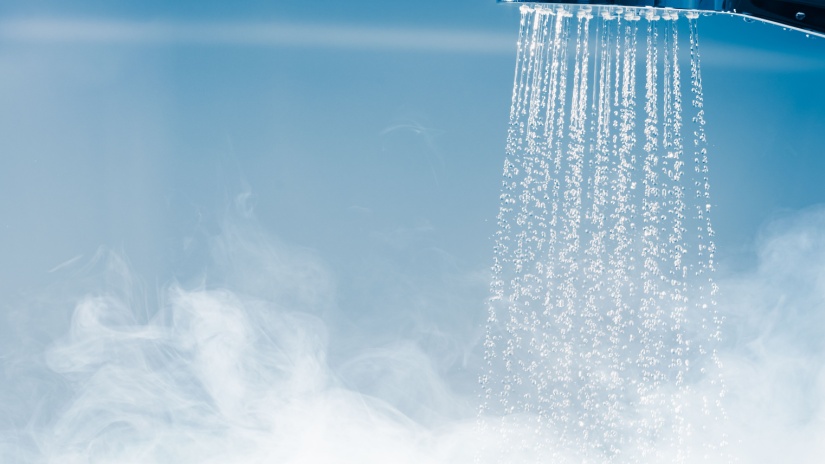Knowledge Centre
What is centralised hot water in Australia?

Hot water is an essential part of everyday life - whether you’re taking a morning shower, doing the dishes or running a load of laundry. In many Australian homes and apartment buildings, hot water is delivered through a system known as centralised hot water. But what does that mean exactly?
A centralised hot water system (also known as a bulk hot water system) is one in which hot water is generated from a central source - typically a gas or electric water heater - then distributed to multiple units within a building. Rather than each household having its own hot water unit, a central system supplies heated water to all dwellings, with each unit usually billed individually based on usage.
This type of setup is most commonly found in apartment blocks, retirement villages, and some townhouses. If you're living in one of these properties and have noticed water heating charges on your electricity or gas bill but don’t have your own hot water system, it’s likely you’re using a centralised hot water service.
Understanding how centralised hot water works, whether it’s right for your property, and how to manage the costs can make a significant difference to your energy and water bills.
Does everyone have centralised hot water in Australia?
No, not all Australians have centralised hot water. In fact, most stand-alone houses and newer apartments tend to use individual hot water systems, where each dwelling has its own dedicated unit - electric, gas, solar, or heat pump.
Centralised hot water is more commonly found in:
- Older apartment buildings
- High-density housing developments
- Some government housing complexes
- Certain retirement communities
If you’re unsure what type of system you have, the easiest way to find out is by checking your energy bill. If your hot water usage is metered and charged as part of a shared service (often listed as “bulk hot water” or “central hot water”), then you are likely on a centralised system.
What are the benefits of centralised hot water?
While it may not be suitable for every home, centralised hot water systems do come with a number of advantages, particularly in multi-dwelling properties.
Space-saving:
There’s no need to install a hot water system in each individual unit, freeing up space for storage or living areas.
Lower upfront costs:
Residents don’t need to purchase or maintain their own hot water units. Installation costs are shared among the building’s residents or covered by the body corporate.
Centralised maintenance:
Repairs and servicing are typically the responsibility of the building manager, strata, or energy provider, not the individual residents.
Energy efficiency (in some cases):
Larger systems, especially those using gas or solar boosters, can be more energy-efficient than smaller, stand-alone units serving only one household.
Is centralised hot water a good idea for homes and apartments?
It depends on your situation. For apartment buildings and multi-unit dwellings, centralised systems can make sense from both a logistical and cost-sharing perspective. They streamline infrastructure and maintenance, which can be especially useful in buildings with a large number of residents.
However, for freestanding homes or newer townhouses, individual systems may offer more control over energy use, system choice (like going solar), and costs. With your own hot water system, you can monitor its efficiency and upgrade it if needed.
One potential downside of centralised systems is that you might not have direct control over the temperature, timing, or maintenance schedule, and your choices for energy providers may be limited depending on the building’s agreement.
Centralised hot water can be a good solution in shared living arrangements - but it’s not always the most cost-effective or flexible for everyone.
Top ways to save money on your water bill
Whether you’re on a centralised hot water system or managing your own, there are still ways to reduce your water heating costs:
Be mindful of hot water use
Shorten your showers, wash clothes in cold water, and install water-efficient fixtures to cut down on usage.
Check your water and energy plan
If you’re being billed for centralised hot water through your energy provider, compare different plans to ensure you’re getting the best rate.
Install water-saving appliances
Choose efficient dishwashers and washing machines with high WELS (Water Efficiency Labelling Scheme) ratings.
Investigate off-peak usage
Some hot water systems heat during off-peak hours. If you're on a time-of-use tariff, you may be able to reduce costs by using hot water outside of peak demand periods.
Report any leaks or faults
In a centralised system, even a small leak can waste a lot of hot water - and your money. Report issues to your building manager or strata promptly.
Speak with Compare Energy about the best ways to save
Whether you're on a centralised hot water system or managing your own energy use, it pays to be informed and proactive. From understanding your hot water charges to finding a cheaper energy plan, a little knowledge can go a long way.
Call our Aussie-based, friendly team at Compare Energy on 1300 790 106 to chat about the best ways to save on your electricity and gas plans. We can help you compare offers and find a plan that suits your lifestyle and budget.

